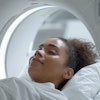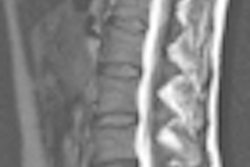An MRI scan prior to epidural steroid injection for patients with chronic lower back pain may not improve outcomes and has only a minor effect on physicians' decision-making, according to a study published online December 12 in the Archives of Internal Medicine.
Researchers from Johns Hopkins School of Medicine, led by Dr. Steven P. Cohen, noted that the use of MRI is soaring in patients with lower back pain, in spite of several studies indicating that advanced diagnostic imaging does not improve outcomes for this application. There are also no unequivocal clinical guidelines covering the use of MRI for epidural steroid injection, the authors noted.
The group decided to investigate MRI's effectiveness by conducting a multicenter, randomized study in which physicians for one patient group ordered their course of treatment without access to MRI results, while physicians for a second group of patients chose their treatment after reviewing MRI scans.
A total of 132 patients, mostly women (57%) with an average age of 52 years, were randomized into the two groups. Patients in group 1 all received epidural steroid injections without their physicians having access to MRI. In the second patient group, patients only received an epidural steroid injection if the MRI supported that treatment. Patients who did not receive epidural steroid injection were removed from the study.
Prior to the procedure, Cohen and colleagues used leg pain scores and function to demonstrate the severity of lower back pain and dysfunction. They found slightly lower leg pain scores in the second group after one month, compared with the patients in the first group. However, there were no differences in pain scores or function after three months.
The researchers also found that the proportion of patients who experienced a positive outcome was similar at all time points (35% at three months in group 1, compared with 41% in group 2). Collectively, 7% of patients did not or would not have received an epidural steroid injection after the MRI was reviewed.
"Our results suggest that although MRI may have a minor affect on decision-making, it is unlikely to avert a procedure, diminish complications, or improve outcomes," Cohen and colleagues wrote. "Considering how frequently [epidural steroid injections] are performed, not routinely ordering an MRI before a lumbosacral [epidural steroid injection] may save significant time and resources."




















